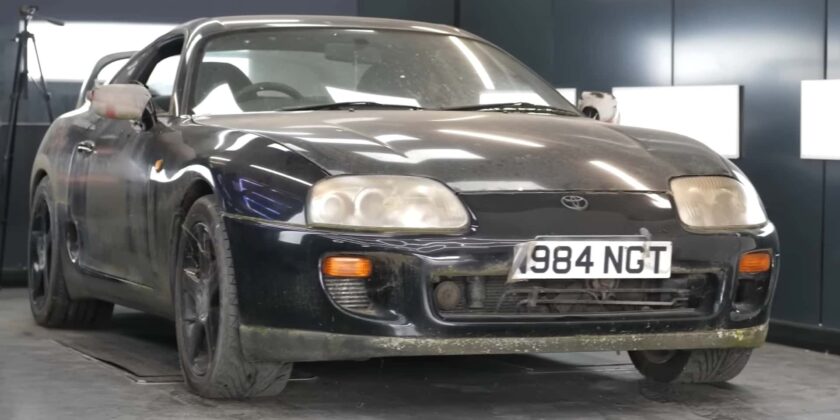Production of the fourth-generation Toyota Supra started in April 1993 after lengthy development and testing processes. A total of around 11,200 units were assembled for the US market, but more were produced for overseas markets until 2002. Today, a well-maintained Supra Mk4 costs a small fortune but more importantly, finding well-preserved original examples is getting increasingly difficult. And when there’s a Supra that needs some attention in order to get back on the road, we are always happy to watch the restoration procedures.
In the case of this black Supra, it has been sitting without anyone’s care for years and the exterior shows traces of many years with no washes. As the description of the video explains, the paintwork is deeply embedded with moss algae and lichen. At a glance, it looks almost impossible to restore the factory look of the sports coupe as there’s damage to the paint on many different areas around the body. With the right tools and enough knowledge, however, (almost) everything is possible.
Of course, everything starts with a contactless prewash of the entire car. The Supra is lifted on a car jack and there’s access to the underbody section as well. Next, it is time for a detailed wash with a microfiber sponge and brushes for the smaller details. All four wheels are taken off and washed from all sides – there’s a lot of brake dust on the inner sections, especially on the front wheels. Once the car is clean and dry, it’s time for the tough job.
All exterior surfaces need to be clayed. Claying is the process of removing bonded surface contaminants before the polishing process, using a synthetic bar of poly clay. This is a very time-consuming procedure but is an absolute must before you polish a car that has been exposed to mother nature for years. There’s a lot more work after that – and that’s even before the interior gets its complete makeover. The result is… well, absolutely fantastic considering how bad the paintwork on this Supra was.
Source: Read Full Article
